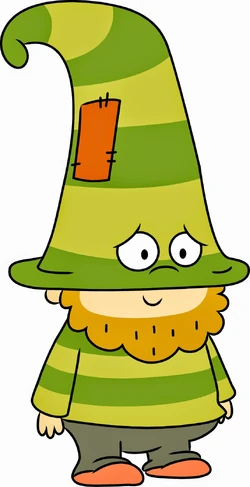On the 1st of August 2016, I wrote an article to send to The Mighty. It was about myself, my autism, and how The Good, the Bad and the Ugly changed my life.
 |
| Notably this part. |
I was diagnosed with Asperger’s Syndrome when I was about nine years old*. So that meant that I had more time than most autistic women to figure myself out and understand who I am.
I’m one of those extroverts with Asperger’s who are never seen in TV or movies yet have existed for a long time despite a new study being found on them.
I’m one of the independent kinds of autistic people, who love to occasionally go outside and wander around on their own.
Though I keep myself to myself and have quiet, antisocial moments, I’m loud, opinionated, belligerent, clumsy, and forgetful. I have a furious and vengeful temper. I get easily distracted and don’t keep very good track of time. I also have a bad memory of faces and would all too often mistake someone for the wrong person. I am anything but a savant, though I had a few things in common with other, more introverted and “nerdy” autistic people, whom I have been able to make friends with.
I liked Westerns growing up. Though I hated the depictions of Native Americans, I loved the beautiful barren desert settings, and the sense of adventure. At the time I had no idea how different “Spaghetti” Westerns were different from Old Hollywood ones. Before May 2015 I had only watched ‘A Fistful of Dollars’ and realised that “Spaghetti Westerns” were quirky little foreign art films with a little more violence than what was depicted in Hollywood.
I’m a very talented artist, and went to study animation at Arts University Bournemouth for three years. I had an ambitious and daring pitch in mind and I was under pressure submitting the supplemental material into the course database.
I’d had a bad month at University at the end of April 2015. My computer had gotten stolen, because I had left it to charge in the classroom and had gone onto a PC to scan artwork; my back had been turned to the computer, which was out of battery and had malfunctioned a bit. I went into a furious meltdown. I wanted revenge and instant recovery. Insurance wouldn’t cover the theft. The University wouldn’t take responsibility, and neither would Disabled Students Allowance. It seemed like nobody but the police were willing to help.
And even worse, I had chosen to stay in a student flat during that second year of University, and my room had mould growing on the walls, which I had no idea about, and which my landlord and flatmates could only blame me for. How was I supposed to know? The landlord told me to open the window, but the problem was no sunlight came into my window so I kept it shut all the time.
So that’s me. I tend to act without thinking first.
Anyway, I decided to cheer myself up… with grit and violence!
On the 15th of May, 2015, I had a Dollars Trilogy movie marathon, where I would watch Sergio Leone’s celebrated trilogy- A Fistful of Dollars, For A Few Dollars More and The Good, The Bad and the Ugly- the latter two I had never seen before- on each day of the weekend.
I had borrowed a laptop from the University and at first I watched the first two online, but then on Saturday 16th my computer kept crashing on me while I was watching ‘For A Few Dollars More’ online, so I thought, “screw it” and bought the DVDs of the latter two movies.
On Sunday 17th I decided that ‘The Good, The Bad and the Ugly’ was the greatest movie ever.
For those of you who don’t know, it’s about a bandit named Tuco (unfairly branded “The Ugly”, despite being played by the stunning Eli Wallach) who finds out that there’s gold buried in a remote military cemetery, but he only had one half of the information, and his former partner Blondie (Clint Eastwood), whom he had tortured to near death shortly beforehand, has the other half- in whose grave the gold is buried in, because Tuco had left behind his dying informant- the one who told him about the gold- to get him some water. So he and Blondie, once recovered, are forced to work together to find the treasure.
The movie is simply beautiful. The comedy is perfect (I was laughing harder than I would at most comedies), the music is gorgeous beyond belief, and there’s a sense of atmosphere which drew me into this world.
I lay there in a trance, with stars in my eyes.
The more I thought about the movie, and its protagonist, the more I realised:
I was Tuco.
Despite being a thief instead of a victim of theft, he had more in common with me than I realised.
He’s funny, feisty, and flawed. He’s clumsy, he’s impulsive, he’s poor at planning ahead, and he’s a loner, and he’s tenacious. He often acts without thinking first, such as when he cheers for a bunch of Confederate soldiers, only to see instead a group of Union soldiers covered in dust. He doesn’t always say the right thing, because, in his words, he doesn’t know the right thing. He tries to be crafty and manipulative, but it inevitably blows up in his face. He can even be a hypocrite at times. And the world he lived in was mean, and harsh, and, he seldom received help from anybody. All of these things I realized I have in common with him.
Sure, despite getting into countless amounts of trouble at Primary and Secondary School, I haven’t had a rope around my neck, lucky me, and there are still quite a few differences between us. The fact that he’s done terrible things in his life, rather than merely foolish ones, are a reason why the world is so cruel to him. I’m not a nice person, but I’m not a criminal either.
But there are still enough similarities between us, enough for me to have cosplayed as him a couple of times, enough for me to feel a special sort of connection to him, almost as great as Leone’s notable affection for the character.
Since then I have thought of him, again and again and again, when dealing with all my insecurities, and forgiving myself of every single dumb mistake.
But more importantly, he’s been a huge inspiration to me in my artwork, (I’ve done a ton of drawings and paintings of him already) and even in my fashion style. You can say that I express my autism through him, even though he has none, he’s just a jerk. Whatever you may think of this scroungy bastard, he’s very special to me. I’m very proud to be a fan of the character, especially since he’s helped me to discover myself.
For those of you who don't know, The Mighty is a website about disabilities of all kinds, and they have a section on autism that people can submit articles to.
After a few conversations with the correspondent, Vicki, she'd offered me an edited version, which took out the details about the computer, and the part about me being a victim of theft.
And then she read about Tuco.

"Some of his actions". Sure, I didn't kill, or steal, or anything like that. But I was a troublemaker, I had a violent temper which has cost me socially and professionally and during that difficult period I was treated like I was the bad one (or "ugly inside", rather.)
I think because the readers are parents, she didn't want them to think that their children would turn out like me.
This was an uncomfortable truth about autistic people that she didn't want on The Mighty.
I told my mother about this and she wrote an email to Vicki defending my actions. I was amused that she defended Tuco, too, even before she knew anything about him.
Then Vicki and her editor tried tiptoeing around the whole Tuco issue.
Then I told her why the character was particularly important for this article.
That's the thing. People like Blondie. They like Clint Eastwood, because he's the tough, gritty action hero of the 60's and 70's. They don't mind the fact that in the film, Blondie kills the most people on screen (11 to be exact). He's a little better than his opponents, but not much.
I wonder if Tuco is judged for his short temper by audiences, too?
Finally Vicki understood.
However, after all that, my article still wasn't published, and the topic wasn't revisited "at a later time". Go figure.
Fortunately, I made
Force of Habit soon afterwards and I was pleasantly surprised that the film was not only shortlisted for Autism Uncut, but I was interviewed for it about a month later.
I didn't mention Tuco's name in my article for Autism Speaks, but I did refer to him as a
bandido from a Spaghetti Western. I don't know if they didn't catch that part, or they were totally okay with it, but that article still got published which I was happy with.
* This was a mistake. I was five, and I was told at nine.


























